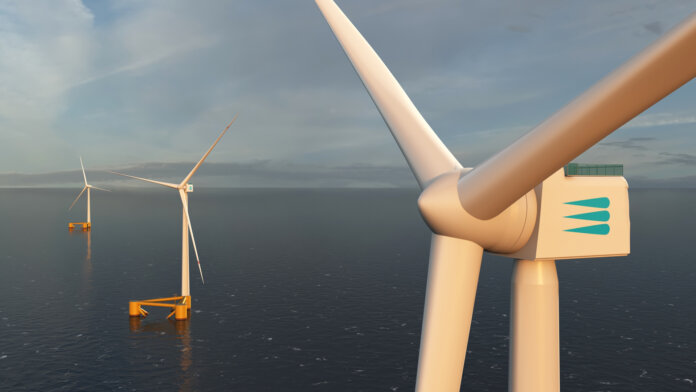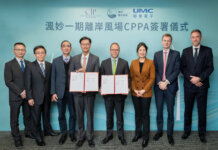A U.K. government grant has been secured for an innovative pilot to develop the U.K.’s first wind turbine blade recycling plant. The £2 million, three-year project involves a consortium led by Aker Offshore Wind and Scottish researchers. They are researching a more sustainable future for the global wind industry and the wider composites manufacturing industry.
The pilot will now get underway to develop a commercially viable solution, overseen by Aker Offshore Wind, trade body Composites U.K., and researchers at the University of Strathclyde’s Advanced Composites Group and Lightweight Manufacturing Centre, which is a part of the National Manufacturing Institute Scotland Group.
Other academic and industry partners include Nottingham University, global waste management firm SUEZ, composite distributor GRP Solutions and composite part manufacturer Cubis.
The project is set up to commercialize a revolutionary method developed by the University of Strathclyde to separate the glass-fiber and resin components in composites and recover the glass-fiber component which can then be reprocessed, molded and reused in other industries, such as the motor trade and the construction industry.
“Offshore wind is playing an important role in our plans to reach net zero, particularly in Scotland,” says U.K. Government Minister for Scotland Malcolm Offord. “It’s great news that this funding will support the development of wind turbine blade recycling, helping prevent blades ending up in landfill and furthering our green ambitions.
Innovate UK, the UK Government’s innovation agency, has awarded £1.3 million to the project, with Aker Offshore Wind contributing more than £500,000 to make the project a reality.
“This project will be an important piece in our drive to accelerate the move to net zero waste and emissions and demonstrates Aker Offshore Wind’s commitment to sustainability across the lifecycle of a wind project; all while investing in Scotland and the U.K. to build a more sustainable future for decades to come,” states Sian Lloyd-Rees, managing director of Aker Offshore Wind U.K.. “The Innovate U.K. grant will make blade recycling a firm reality, building on the expertise of the researchers at Strathclyde University and our decades of experience at Aker Offshore Wind to create a commercially-viable green solution.”
At present, when giant turbine blades reach the end of their working lives, there are only two options for managing the waste: send them to a landfill or to waste-to-energy plants where they are combusted at significant energy cost.
Waste from wind turbine blades is expected to reach around 2 million tons globally by 2050, and U.K. volumes of composite waste already exceed 100,000 tons per year.
Aker Offshore Wind has pledged its support to trade body WindEurope’s call for a Europe-wide landfill ban on decommissioned wind turbine blades by 2025. With thousands of turbines being erected and built as part of the transition away from fossil fuels, the project partners applied to the U.K. government for support.
Strathclyde Principal Professor Sir Jim McDonald mentions how researchers at Strathclyde have developed new processes for recycling and reusing the blades to help reduce renewable energy waste.
“This project is a vital step towards establishing a commercial recycling route for composite materials in the UK and beyond, covering both wind turbine blades and several other applications in the construction and transport sectors,” adds Malcolm Forsyth, sustainability manager at Composites U.K. and overall project leader. “Composite materials combining glass-fiber and polymer resin systems, have a huge role to play in enabling the U.K. economy to transition to net zero and we need effective recycling at end of life to ensure that composite materials achieve high levels of circularity in future.”




